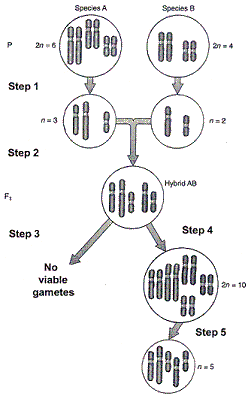Today, the major danger to species is:
a. hunting by humans.
b. introduction of exotic species.
c. destruction of habitats.
d. predator control.
e. commercial harvesting.
C
You might also like to view...
The life cycle of the Chinese liver fluke goes through which of the following sequences in its life history?
A. adult, shelled embryo, miracidium, cercaria, sporocyst, rediae, metacercaria, adult B. adult, shelled embryo, miracidium, sporocyst, rediae, cercaria, metacercaria, adult C. adult, shelled embryo, miracidium, metacercaria, sporocyst, rediae, cercaria, adult D. adult, miracidium, sporocyst, rediae, cercaria, metacercaria, shelled embryo, adult E. adult, shelled embryo, sporocyst, rediae, cercaria, metacercaria, miracidium, adult
The three phylogenetic trees shown here all contain the same members and all have a common ancestor, but are divided up in three different ways. Which tree has members circled that are of more than one evolutionary line and does not include the most recent common ancestor of the included lineages? What type of group is this?

A. Tree 1; monophyletic.
B. Tree 2; polyphyletic.
C. Tree 2; paraphyletic.
D. Tree 3; monophyletic.
E. Tree 3; polyphyletic.
The end result of the process in Figure 20-1 is:

a. sympatric speciation.
b. allopolyploidy.
c. hybridization.
d. rapid speciation.
e. All responses apply
1 mole = 1000 millimoles (mmol); 1millimole = 1000 micromoles (µmol). If a solution contains 38231 µmol, what is that amount in mmol?
A. 3823.1 mmol B. 382.31 mmol C. 38.231 mmol D. 3.8231 mmol